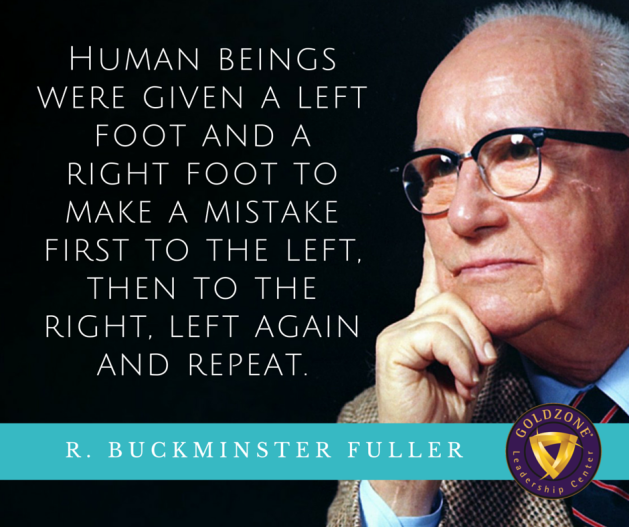This article is from INTUITION by Dr. R. Buckminister Fuller, pages 91 – 100.
Tag: Mistakes
Many of today’s leaders are operating from an old leadership model that could be described as “leadership through domination.” This style stifles creativity and inhibits innovation.
It is impossible to think of new ideas that defy old ways of doing things if we are afraid of making mistakes and are constantly worried about the real or perceived threat from a leader whose style is based on autocracy, coercion and punishment.
Creative and innovative people require creative and innovative workplaces that are fluid, flexible, fun, nurturing, supportive and enjoyable. No longer is economic success dependent on natural resources, manufacturing excellence, and scientific or technological prowess. Today, the terms of success revolve around an organization’s ability to mobilize, attract and retain creative human talent. Every competitive dimension depends on creativity and ingenuity of the people that make up the organization.
Leading a team of creative talent is very different from leading a factory line of workers who do similar tasks repetitively. It simply does not work to command creativity! Can you imagine Mozart or Picasso being told to produce or else, “You are out!” Leadership in the creative economy requires vastly different skills.
Today’s new model of leadership involves partnership, cooperation and team.
One of the biggest blocks to most people stepping into personal leadership and responsibility is that they are so afraid of making mistakes that they won’t take the risk of being responsible and accountable at the same time. Most people inaccurately see responsibility as another way of laying “blame” – or finding who is “at fault” when things go wrong. Combine this with the fear of losing face, and you have people who won’t speak up – even though they know the solution!
Encouraging people to speak up requires building trust and safety. Before people will take the risk of speaking up, they need to know that they won’t be punished for expressing themselves and stating their opinions.
“Recently, I was asked if I was going to fire an employee who made a mistake that cost the company $600,000. ‘No,’ I replied, ‘I just spent $600,000 training him. Why would I want somebody to hire his experience?’ “
– Thomas J. Watson, Founder of IBM








































